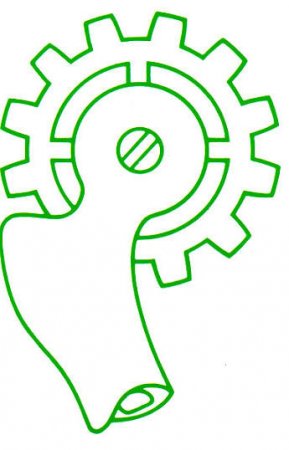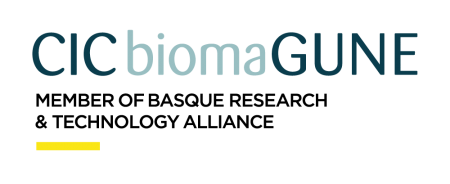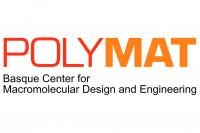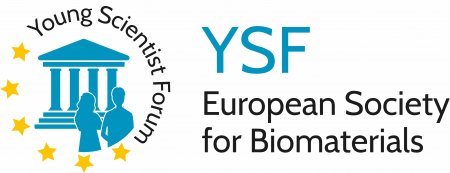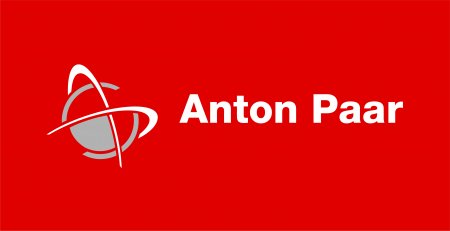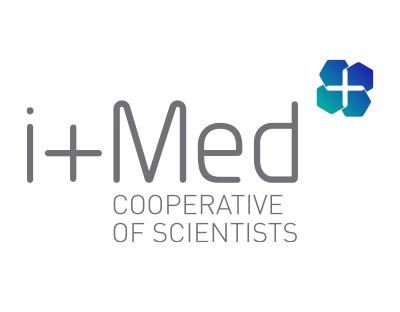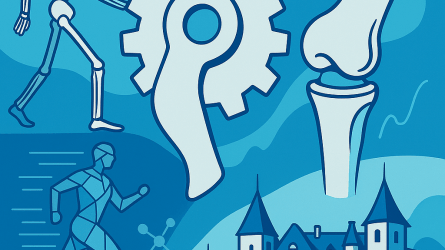
XLVII Congress of the Iberian Society of Biomechanics and Biomaterials
Azalpena
Laburpenak bidaltzeko deialdia irekita dago jada!
Donostia–San Sebastián izango da Biomekanika eta Biomaterialen Elkarte Iberiarraren XLVII. Kongresuaren egoitza, 2025eko azaroaren 6an eta 7an.
Bidali zure ekarpena dokumentu-eredu hau erabiliz helbide honetara: sibb2025@gmail.com
Aurten, kongresuak elkartearen hiru arlo nagusiak jorratuko ditu: Biomaterialak, Biomedikuntza eta Kirol Biomekanika. Ekitaldiak foro dinamiko bat eskainiko die ikertzaileei, beren azken ekarpen zientifikoak aurkezteko eta eztabaidatzeko, gure kongresuaren ezaugarri den giro bero familiar eta aberasgarri batean. Ekitaldi parte-hartzaile eta diziplina anitz biltzen duena antolatzea da gure helburua, biomaterialen, biomedikuntzaren eta kirol biomekanikaren inguruan biltzen diren gai desberdinak gaiak jorratuz.
Pozten gaitu aurten Donostia–San Sebastiánen ekitaldia jasotzea, , ekosistema zientifiko eta teknologiko aberatsa eta kultura- eta natura-ondare paregabea uztartzen dituen hiria izanik. Materialen eta zientzia biomedikoen alorreko ikerketa-zentro aurreratuak, unibertsitateak eta enpresa aitzindariak ditu, eta horrek Donostia kokaleku ezin hobea bihurtzen du kongresu honen edizioa ospatzeko. Berrikuntzarekiko duen konpromisoak eta bikaintasun zientifikoarekiko duen dedikazioak indartzen dute gure diziplinarteko lankidetza eta ezagutzaren trukea sustatzeko misioa.
Kongresua Miramar Jauregian izango da, eta bi eguneko programa osoa izango du, honako hauek barne: hitzaldi nagusiak, ahozko saioak, poster aurkezpenak eta Ikertzaile Gazteei zuzendutako jarduerak, diziplina eta ibilbide profesional ezberdinetako ikertzaileen arteko harremanak sustatzeko.
Ondoko hizlari gonbidatuen parte-hartzea baieztatu dugu: Sandra Camarero (POLYMAT), Manuel Mazo (CIMA), Francesco Capuano (Universidad Politécnica de Cataluña), eta Jose Muñoz (Universidad Politécnica de Cataluña).
Beste hizlari gonbidatu batzuk laster iragarriko dira, beraz, egon adi!
Batzorde Zientifikoa honako hauek osatzen dute:
- Juan García López (Universidad de León)
- Alba Herrero Molleda (Universidad de León)
- Archit Navandar (Universidad Politécnica de Madrid)
- Javier Rueda Ojeda (Universidad Politécnica de Madrid)
- Marina Gil Calvo (Universidad de León)
- Francesca Perin (POLYMAT)
- Gail A. Vinnacombe-Wilson (CICbiomaGUNE)
- Sophia Caroline Bittinger (CICbiomaGUNE)
- Clara García Astrain (POLYMAT)
- Dorleta Jiménez de Aberasturi (CIC biomaGUNE)
- Gil Serrancolí (Universidad Politécnica de Cataluña)
- Enrique Navarro Cabello (Universidad Politécnica de Madrid)
Ikertzaile Gazteen jarduerak honako hauek antolatuko dituzte:
- Nieves Cubo (Universidad de Nebrija)
- Andreia Pereira (I3S – Instituto de Investigação e Inovação em Saúde, Portugal)
- Ana M. Muñoz Mateo (POLYMAT)
Zure zain egongo gara Donostia–San Sebastiánen, 2025ean!
DATA GARRANTZITSUAK
- Laburpenak bidaltzeko azken eguna: 2025/09/15
- Laburpenen onarpena: 2025/10/6
- Aurreratutako erregistroaren amaiera: 2025/10/10
- Erregistro itxiera: 2025/10/23
KOMUNIKAZIO LEHEN SARIA ETA BEKA BIDAIAK
SIBBek sariak emango dizkie ikertzaile gazteek aurkeztutako komunikazio onenei.
600 euroko Lehen Sari bat eta 150 euroko bi bigarren sari emango dira, betiere irabazleek artikulu bat bidaltzen badute Biomekanika Elkartearen aldizkarira. Horrez gain, “beka bidaiak“ eskainiko dira, bakoitza 300 euroko diru-laguntzarekin kongresurako bidaia finantziatzeko, parte hartzea errazteko asmoz.
Helburuak
- Biomaterialak, biomedikuntza eta kirol-biomekanikaren alorretan lortutako emaitzak, esperientziak eta komunikazio zientifikoak trukatzea.
- Biomekanika eta Biomaterialen Elkarte Iberiarraren arlo ezberdinetako azken garapenen inguruan eztabaida sustatzea.
- Ikerketa diziplina anitzekoa eta ezagutzaren elkartrukea bultzatzea.
- Ikerketa akademiko eta industrialeko profesionalen arteko topagune bat sortzea, karrera-maila desberdinetan.
- Ikertzaile gazteak inplikatzea, belaunaldi berrien artean lankidetza eta ezagutzaren trukea sustatzeko biomaterialen, biomedikuntzaren eta kirol-biomekanikaren esparruetan.
- Giro atsegin eta hurbilean partekatzeko aukera eskaintzea, ahozko aurkezpen, poster saio eta gizarte-jardueraren bidez.
Jarduera nori zuzenduta
- Unibertsitateko ikaslea
- Profesionalak
Metodologia
European Society for Biomaterials-eko Young Scientist Forum (YSF) (ikertzaile gazteak) erakundeak jarduera sorta bat babestuko du, ikerketa hasierako faseetan dauden ikertzaileen arteko komunikazio zientifikoa eta lankidetza bultzatzea helburu dutenak. Programak mentoritza zientifikoko saioak eta networking jarduera interaktiboak uztartuko ditu; lehenengoetan ikertzaile seniorrek orientazioa eskainiko dute ibilbide profesionalari eta ikerketa-estrategiei buruz, eta bigarrenek diziplina eta erakunde ezberdinen arteko elkarrizketa eta lankidetza sustatzea izango dute xede. Horrez gain, ekitaldi sozial eta aisialdikoak ere antolatuko dira, parte-hartzaileek harreman esanguratsuak eraiki ditzaten giro informal batean, harreman akademiko hutsetatik haratago, biomekanika eta biomaterialen komunitatearen zentzu komuna indartuz.
Zuzendariak

Clara García Astrain
POLYMAT
Clara García Astrain Ikerbasque ikertzailea da POLYMATen, non biosentsoreetarako erabilera duten polimero funtzionalen garapenean aritzen den. Bere doktoretza Ingeniaritza Material Berrerabilgarrietan burutu zuen Euskal Herriko Unibertsitatean (UPV/EHU), ikerketa-egonaldi bat Karlsruhe Institute of Technology-n (KIT, Alemania) eginez, non aplikazio biomedikoetarako hidrogel nano-konposatuetan espezializatu zen. Doktoretza ondoren, ikerketa postdoktorala burutu zuen Institute of Chemistry and Processes for Energy, Environment and Health-en (ICPEES, University of Strasbourg, Frantzia). Euskal Herrira itzulita, BCMaterials-en (Leioa, Bizkaia) eta geroago CIC biomaGUNE-n (Donostia-San Sebastián, Gipuzkoa) lan egin zuen Juan de la Cierva bekadun gisa. 2024an POLYMATera batu zen, eta bertan jarraitzen du material zientziaren eta bioingeniaritzaren arteko mugan ikertzen, 3D zelula-ereduen barruan biosentsore-plataformen integrazioa aztertuz prozesu biologikoen in situ monitorizaziorako.

Dorleta Jimenez de Aberasturi Arranz
CICbiomaGUNE
Dorleta Jiménez de Aberasturi Ikerbasqueko ikertzailea, eta Ramón y Cajal bekaduna, 2023tik CIC biomaGUNEko Material Hibrido Biofuntzionalen taldeko burua da. Dorleta Euskal Herriko Unibertsitatean (EHU) lizentziatu zen 2006an. 2013an, doktoretza titulua jaso zuen UPV/EHUren eta Philipps University of Marburg unibertsitateetatik (tutorekidetzan eginda). Zuzendariek Prof. T. Rojo , Dr. I. Ruiz de Larramendi eta Prof. W. Parak izanik. 2014 an Prof. L. Liz-Marzánen taldeko kide izatera pasa zen nanopartikula plasmoniko koloidalen sintesian eta funtzionalizazioan espezializatuz. Esperientzia izugarria du bioaplikazioetarako material nanoegituratu hibridoen diseinuan. 3D in vitro eredu dinamikoen biofabrikaziorako material hibrido funtzionalen garapenean eta eredu horiek eta prozesu biologiko desberdinak ulertzeko kontraste-agenteen eta/edo biosentsoreen garapenean oinarritzen da bere ikerketa taldea.
Hizlariak
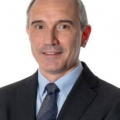
Conrado Aparicio Bádenas
Universitat Politècnica de Catalunya (UPC)-BarcelonaTech
Dr. Aparicio is Group Leader of the Bioinspired Oral Biomaterials and Interfaces (BOBI) Lab and ICREA Research Professor at the Dpt. of Materials Science and Engineering of the UPC-Technical University of Catalonia since September 2024. Dr. Aparicio is materials engineer by training. He started his academic career at UPC, but moved to University of Minnesota (UMN) where he spent 12+ years in the Dpt. of Restorative Sciences and was Deputy Director of the Minnesota Dental Research Center for Biomaterials and Biomechanics. He returned to Barcelona as FBA fellow at UIC Barcelona–Universitat International de Catalunya, where he was Vice-rector for Research, Innovation and Knowledge Transfer and director of the Study and Control of Oral Infections Research Group. He is also associated researcher at IBEC-Institute for BioEngineering of Catalonia and elected fellow of AIMBE-American Institute for Medical and Biological Engineering. Prof. Aparicio has published 150+ research papers and has lectured around the World on biomineralization and bioactivation of synthetic biomaterials for reparative and regenerative dentistry and medicine. He is co-inventor of multiple patents, one of them licensed and marketed by a dental implant company.

Sandra Camarero Espinosa
Dr Camarero-Espinosa is an Ikerbasque Fellow and PI at the POLYMAT institute where she stablished the BioSmarTE group in 2021. The group activities focus on the regeneration of complex tissues through the design of smart implantable scaffolds. This passes through the design of stimuli responsive systems, the exploitation of techniques such as 3D (bio)printing and the understanding of stem cell processes and their interactions with biomaterials. Sandra obtained her PhD degree in 2015 in Polymer Chemistry and Bioengineering from the Adolphe Merkle Institute (Fribourg, Switzerland) and was recognized with an award for an outstanding PhD thesis by the Swiss Chemical Society. After gaining an early post-doctoral fellowship from the Swiss National Science Foundation, in 2015 she moved to Brisbane (Australia) to work at the AIBN Institute (Australian Institute for Bioengineering and Nanotechnology, University of Queensland) where she continued her research in instructive biomaterial scaffolds and their interaction with stem cells. She then joined in 2017 the MERLN institute at Maastricht University (The Netherlands) where she focused her studies on the fabrication of 3D printed scaffolds for the regeneration of complex tissues.

Francesco Capuano
Universitat Politècnica de Catalunya
Francesco Capuano is a Serra Húnter Assistant Professor in the Department of Fluid Mechanics at the Polytechnic University of Catalonia (UPC). He earned his degree in Aerospace Engineering from the University of Naples "Federico II" in 2011, where he also completed his PhD in 2015. He has held postdoctoral research positions at the University of Naples (2015–2020) and the Politecnico di Bari (2021), and was a visiting researcher at Stanford University (2014) and a postdoctoral research associate at George Washington University (2017–2018). His research centers on the development of robust, high-fidelity computational methods for modeling and analyzing multiscale and multiphysics phenomena in engineering and biological systems. He places particular emphasis on scale-resolving simulations of turbulent flows, cardiovascular biomechanics, and biological fluid dynamics. Currently, he serves as principal investigator or co-investigator on several projects focused on advanced, physics-compatible numerical methods for the Navier-Stokes equations, in silico and in vivo analysis of cardiovascular flows, microplastic aggregation in the oceans, and biofilm formation under turbulent flow conditions.

Markel Dieguez Pereira

Pablo Floria Martín
Universidad Pablo de Olavide
Pablo Floría es profesor de Biomecánica Deportiva en la Universidad Pablo de Olavide (Sevilla), doctor en Ciencias de la Actividad Física y del Deporte por la Universidad Autónoma de Madrid. Su línea principal de investigación se centra en el análisis de la variabilidad del movimiento y la coordinación, con especial atención a su aplicación en la carrera a pie. Es miembro activo de la International Society of Biomechanics in Sports (ISBS), participando regularmente en sus congresos, y forma parte del comité editorial de la revista Sports Biomechanics. Está especialmente interesado en la incorporación de nuevas metodologías y tecnologías aplicadas a la biomecánica del deporte. En su intervención en el congreso, compartirá su experiencia en el análisis de la coordinación como herramienta para optimizar el rendimiento deportivo desde una perspectiva biomecánica.

Marina Gil Calvo
Profesora Permanente Laboral en el Departamento de Educación Física y Deportiva de la Universidad de León (España). Obtuvo su Licenciatura en Ciencias de la Actividad Física y del Deporte en la Universidad de León (2013) y su Doctorado en Actividad Física y del Deporte en la Universitat de València (2018). Actualmente forma parte del grupo de investigación Análisis de Movimiento Humano, Rendimiento Deportivo y Salud (AMREDyS) de la Universidad de León, y colabora activamente con el Grupo de Investigación en Biomecánica Aplicada al Deporte (GIBD) de la Universitat de València y con el grupo iHealthy del IIS Aragón, asociado a la Universidad de Zaragoza. Su línea de investigación se centra en la biomecánica deportiva y el análisis del movimiento humano, incluyendo el estudio de parámetros fisiológicos como la temperatura superficial de la piel mediante termografía infrarroja, variables cinemáticas y cinéticas, percepción de confort y fatiga. Ha participado en numerosos proyectos de investigación financiados, tanto públicos como privados, a nivel regional, nacional e internacional, orientados al rendimiento deportivo —especialmente en la validación de equipamiento deportivo (por ejemplo, plantillas y prendas de compresión)
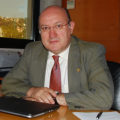
Xavier Gil Mur
UPC
El Prof. Xavier Gil Mur ha realizado destacadas contribuciones en el desarrollo de biomateriales para la sustitución de tejidos duros, implantes dentales, aleaciones superelásticas y con memoria de forma, materiales bioactivos y osteoinductivos. Su investigación se centra en los mecanismos que rigen la interacción entre biomateriales, células y tejidos. Es autor de más de 410 publicaciones indexadas (índice h 71, >12.950 citas), 275 ponencias, 10 libros editados y 47 capítulos, y ha impartido más de 80 conferencias invitadas. Ha dirigido 50 tesis doctorales, 12 estancias posdoctorales y más de 60 trabajos de máster. Posee 6 patentes, entre ellas el implante dental ContacTi, y es cofundador de la spin-off Mimetis Biomaterials. Ha sido vicerrector de la Universitat Politècnica de Catalunya (UPC), rector de la Universitat Internacional de Catalunya y editor jefe de la revista Biomaterials. Ha recibido distinciones como el Premio a la Trayectoria Científica en Ciencia de los Materiales (2020) y el Premio de Honor de la Sociedad Española de Implantes (2021). Es Doctor Honoris Causa por la Universidad de La Habana (2018) y por la Universidad Europea Miguel de Cervantes (2024), y actualmente es vicerrector de la UPC.

Fernando Lucena Fontalva

Elena Martínez Fraiz
Ibec
Dr. Elena Martínez has a PhD degree in Physics (University of Barcelona). After a first postdoctoral period at the EPFL (Lausanne, Switzerland), she moved back to Spain with a Ramon y Cajal grant. At her new position at the Parc Científic de Barcelona, she pioneered at the national level techniques such as the Focused Ion Beam/SEM characterization of cell/material interfaces and developed original strategies for surface micro and nanopatterning for cell culture and biosensors. Later, as Group Leader at the Institute for Bioengineering of Barcelona, she transitioned to develop new technologies for the microfabrication on soft materials that mimic the extracellular matrix of soft tissues with the aim of creating new tissue engineered models that could be used in biomedical applications. In the last 10 years, she has been working in developing new cardiac, intestinal, skin and vascular engineered tissues. To that aim, her lab has been working on new bioprinting techniques, bioinks, bioreactors and microfluidic applications, which she has combined with primary cells and organoids for a better representation of the tissues.
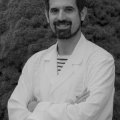
Manuel Mazo Vega
Universidad de Navarra
A Biochemist by training I am born and bred in Pamplona. My expertise was tilted to stem cell biology during my PhD and tissue engineering in my postdoc. My PhD (completed in 2009) was centred on the application of adult stem cells on animal models of myocardial infarction. I then spent 3 years in the same group upscaling the therapy to a clinically-relevant model of infarction in pig, whilst deriving our fist human induced pluripotent stem cell (hiPSC) lines. Afterwards, I obtained funding for a 4-year postdoc at Imperial College London, under the supervision of Prof Molly Stevens, where I gained significant experience in tissue engineering and materials, in a highly interdisciplinary environment. In 2017 I came back to Pamplona, where in 2018 I started my research group. In these last years, I have settled and established a strongly-collaborative research line, aiming to find solutions for biomedical problems through the application of cellular and biofabrication technology. My team specialised in using hiPSC-derived phenotypes and biofabrication technologies to build human myocardial tissues for therapeutic and modelling applications, with an special emphasis in cardio-oncology and transthyretin amyloid cardiomyopathy.

José Muñoz
Universitat Politècnica de Catalunya
Jose Muñoz is a full professor at the department of mathematics of Universitat Politècnica de Catalunya (UPC). He studied Mechanical Engineering at UPC and École Centrale Paris (ECP) and completed his PhD at Imperial College London in 2004. After a post-doctoral year at King's College London, he became lecturer at UPC, where he has remained since. He has been visiting lecturer at ECP (France), University of Newcastle (Australia) and Wisconsin-Madison (USA). His research interests are focused in the design of numerical methods for the analysis of the stability of materials, the modelling of contact problems, and elastodynamics, with special emphasis on the modelling of cell and tissue mechanics in developmental biology. He is currently working on the numerical solution of inverse problems and optimal control for studying worm locomotion, embryonic heart growth, and general morphogenesis.

Jennifer Patterson
IMDEA Materials Institute
Jennifer Patterson is a researcher and leader of the Biomaterials and Regenerative Medicine Group at IMDEA Materials Institute (Madrid, Spain). She received a bachelor’s degree in chemical engineering from Princeton University (USA) and completed a PhD in bioengineering at the University of Washington (USA) in 2007. She went on to perform postdoctoral research in the group of Prof. Jeffrey Hubbell at EPFL (Switzerland), supported by a fellowship from the Whitaker International Program. Throughout her career, she has worked in academia and industry, including positions at the start-up Therics, Inc. (USA), the first company to apply 3D printing technology in the field of tissue engineering, and as an assistant professor at KU Leuven (Belgium). On the one hand, her research interests include the development of new materials for medical applications with a focus on hydrogels. She works with synthetic hydrogels to enhance their biomimetic and mechanical properties, for example, through peptide functionalization or small molecule self-assembly. On the other hand, she aims to apply these materials for tissue regeneration, with a focus on tissues like the heart, skin, cartilage, and bone.

Daniel Rodriguez Rius
Universitat Politècnica de Catalunya (Barcelona-TECH)

Virginia Saez Martínez
Matrikula prezioak
(*) Graduondoko edo masterreko ikasle izateagatik murriztutako kuota jasotzeko, aldez aurretik eskaera bat aurkeztu behar duzu (baliozko ikaslearen NANa edo zure ikuskatzaileak sinatutako gutun bat erantsita) helbide honetara: sibb2025donostia@gmail.com
| Matrikula | 2025-10-10 arte | 2025-10-28 arte |
|---|---|---|
| 350,00 EUR | 400,00 EUR | |
| 250,00 EUR | 300,00 EUR | |
| 50,00 EUR | 50,00 EUR | |
| 0 EUR | 0 EUR |
Kokalekua
Miramar Jauregia
Mirakontxa pasealekua 48, 20007 Donostia
Gipuzkoa
Miramar Jauregia
Mirakontxa pasealekua 48, 20007 Donostia
Gipuzkoa
